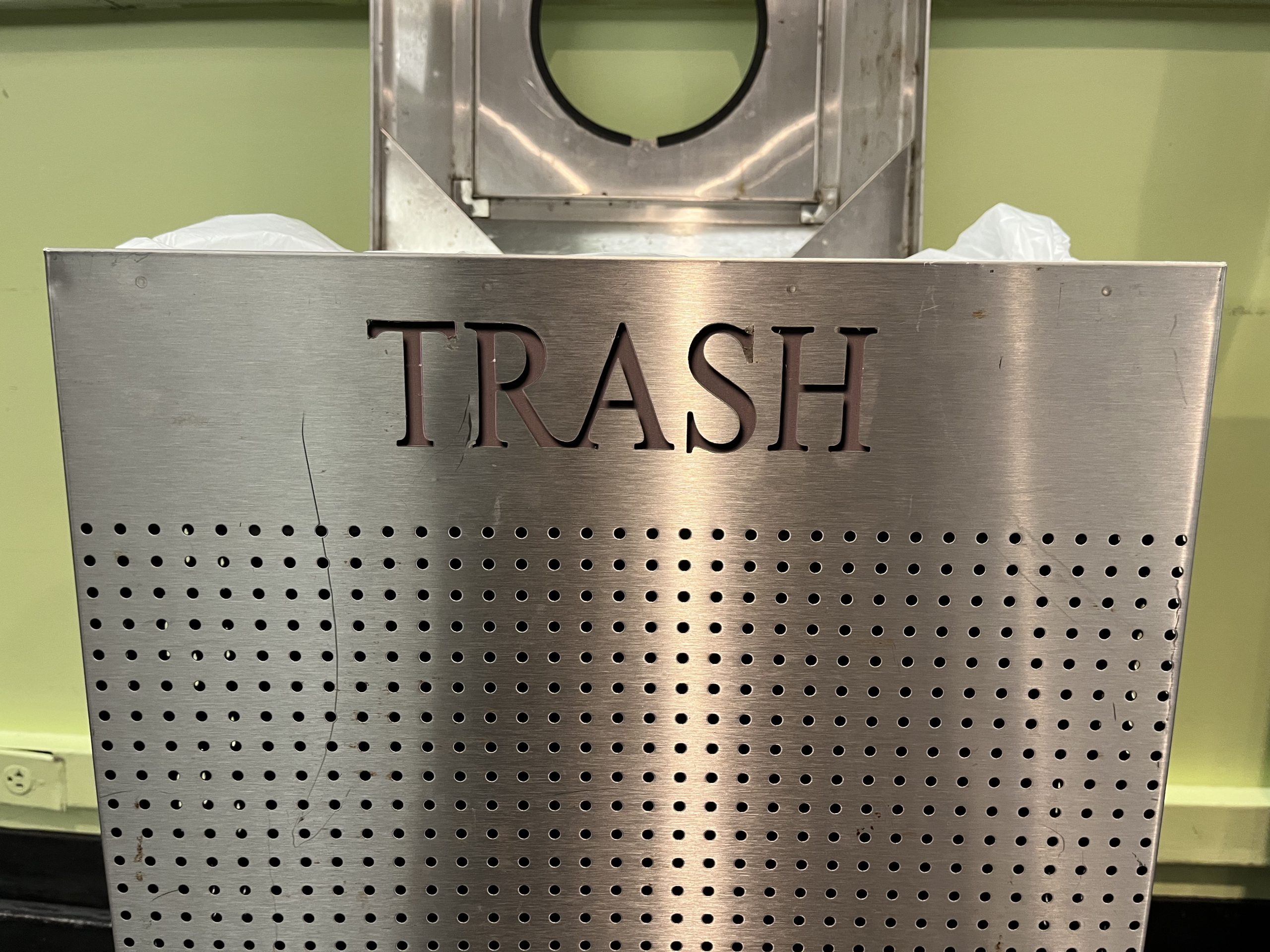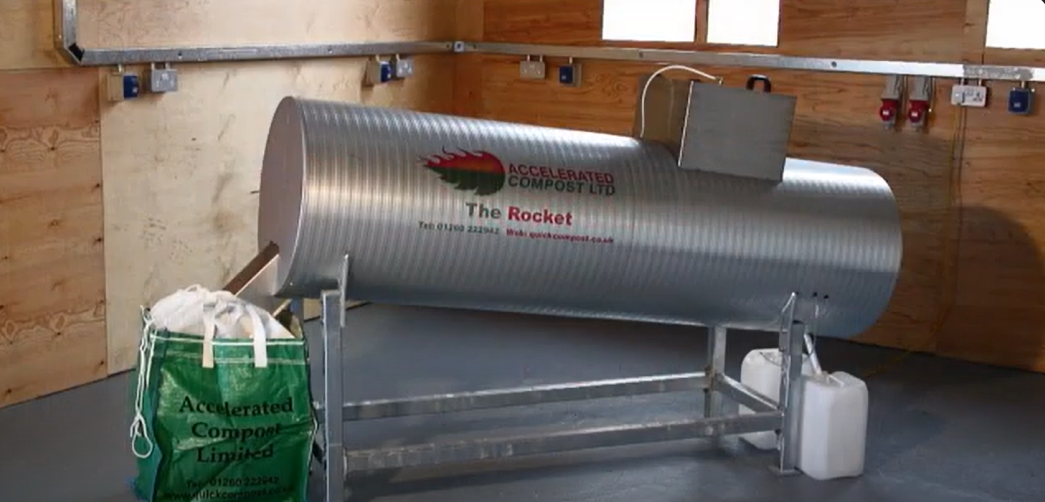 Just Trash. / Photography by Nathan Zierlein.
Just Trash. / Photography by Nathan Zierlein.
New York City is a filthy town, littered with cigarette buts, infested by rodents and other pests. Why should hunter-heads be a part of the problem?
In the Spring of 2023, I found myself browsing the bulletin boards across Hunter desperately looking for an on-campus job to pay my rent and fund my after hours shenanigans. One day I was sitting in my Introduction to Economics course, dreading life and questioning why I took a business course to begin with. Almost falling asleep in the large lecture hall, I was awakened by the promise of Hunter Composts, an initiative spearheaded by now Hunter alumni, Mufi Islam. Originally receiving a grant from Friday’s and The Green Initiative Fund (TGIF), Islam’s program would run for two weeks in Spring 2023. With the intention of bolstering better habits for waste disposal and composting, the project prompted volunteers to moderate students waste management and educate those on the ethical perks of composting.
Pacing back and forth in front of the waste bins, I aimlessly chased down begrudging students before they’d reach the bins. After trying to redirect my peers to properly chuck their trash, I was met with rolled eyes, pursed lips and blank stares from the irritated cafeteria patrons. Some students even refused to properly dispose of their waste or claimed they hadn’t heard of composting at all — a reaction that frustrated and disturbed me to great lengths. I’m no hippy or flower child, but I do care about respecting our communal spaces and looking towards the future of our environment. When I reminisce back on my tedious time spent with Hunter Composts, all I can think about is if this project changed anything on campus and if anyone truly cared about the work that was trying to be done.

Image of “The Rocket,” a composting machine utilized by Lehman College. / Screenshot courtesy of nathtube1 on YouTube.
According to Hunter College New York City Food Policy Center, organic waste, paper and scraps of food make up 34% percent New York City’s garbage build-up. A third of the population’s waste, this startling statistic is only a fraction of the larger problem: people’s attitudes and lack of effort towards a more sustainable way of living.
Nearly two years later I returned back to the scene of my heyday as a volunteer and decided to interview students on my own terms, without the desperation of forcing my co-eds to properly ditch their dishes.
Perched in the center of the cafeteria are Computer Science Majors Sheridan Siquencia, senior and Joshua Gibaja, junior, snacking on a feast of assorted snacks from the vending machines and the outside world. Eating in the cafeteria one to three times a week, the pair believe Hunter has put in little to no effort to properly dispose of its food waste, let alone manage its recycling in an ethical way.
“I don’t see any composting bins or anything like that,” said Siquencia “Even the recycling bins are scarce in my opinion.”
Primarily bringing plastic bottles and wrapped foods as a substitute for the cafeteria menu, Gibaja believes that Hunter throws away its waste without any regard to the benefits of composting.
“If you see all of the garbage they all get sorted out in the same bins and at the end of the day they’re all being dumped in the same area”
Before attending Hunter, Gibaja chipped in at his high-school’s composting club – spending a few hours a week sorting through the garbage generated by the study body. After being told about Hunter Composts existence, Gibaja never thought Hunter would have a similar effort at all.
“I used to have a club for composting in my high school and we’d have to spend a few hours to sort all of the trash out, I don’t believe Hunter has any initiative for that to begin with”
Despite the supposed lack of enthusiasm around composting, Hunter Composts isn’t the first group that attempted to introduce composting to the CUNY sphere. In 2016, Lehman College launched a waste reduction project with the NYC Compost Project and Lehman College’s Sustainability Council. At the time, their goal was to minimize compostable waste that goes into landfills using an onsite Rocket Composter. Starting in 2009, Lehman has utilized this device by processing 120 pounds of non-smelly, moist compost per-day. Yet the question still remains: Why does Hunter need to compost and what would it do for our community in the long-run?
The answer is simple, we have to try and make our community spaces clean for future students and faculty to come. Whether that be spreading the word, reducing your waste intake, being more mindful about sorting one’s trash or even spreading the word – It’s up to the student body to uphold sustainability at school and in the greater world beyond.

Nice arrive … I can’t believe some people don’t know about recycling. I’m out here in CA promoting sustainability with women’s clubs and Alta Vista Botanical Gardens in Vista. I love to put “trash talkers” at bins at our festivals. It works but it’s hard to persuade high School kids to stick with it. Good luck !!